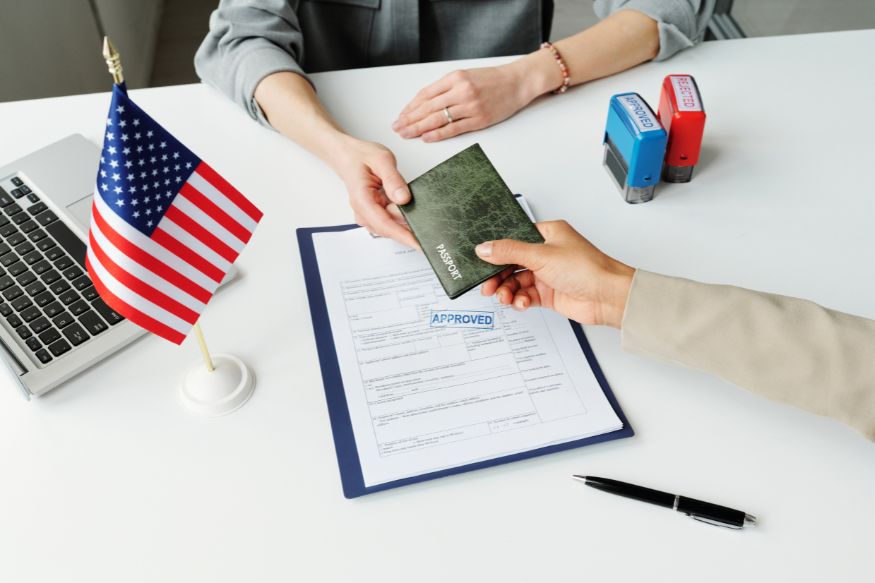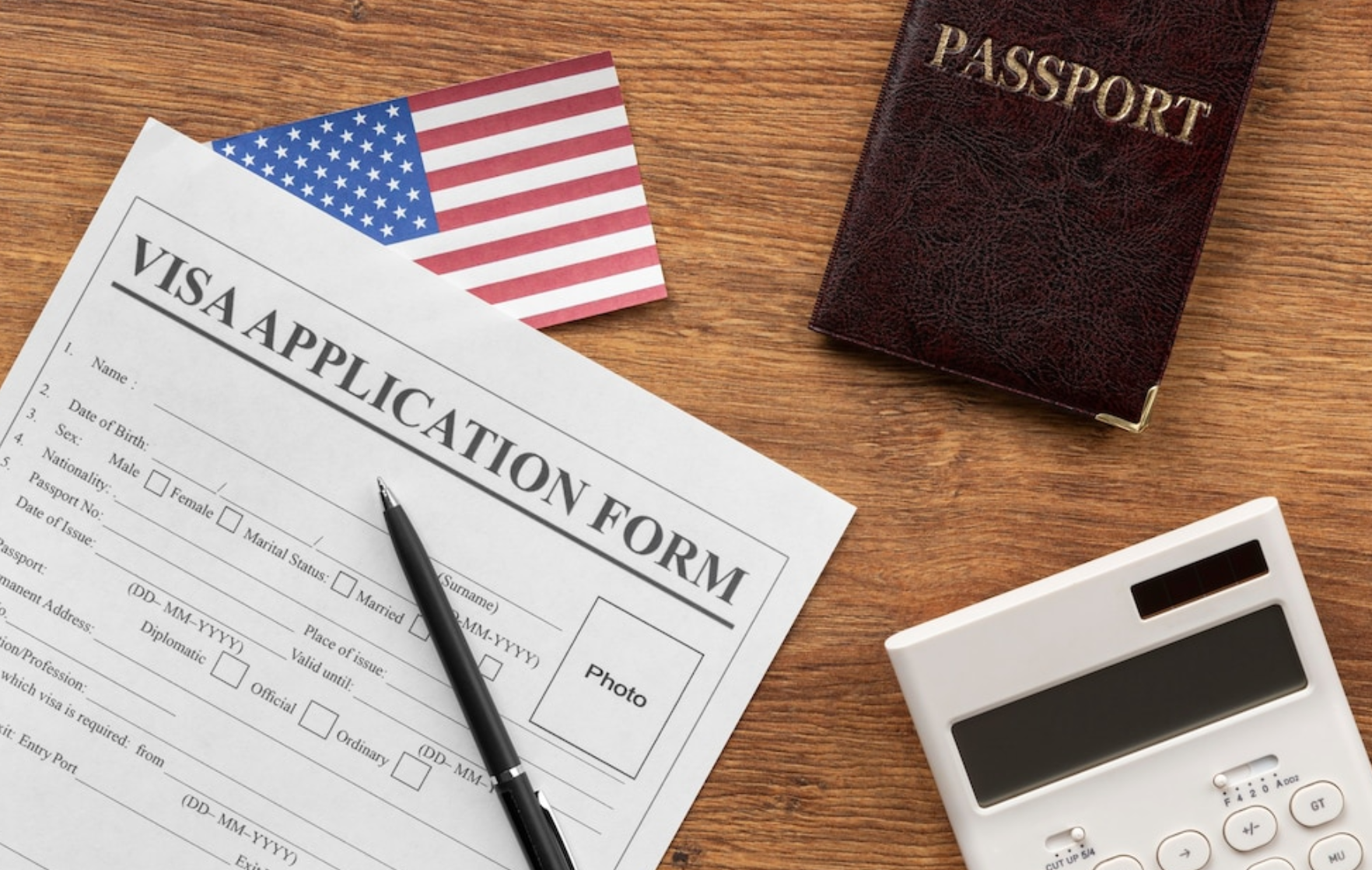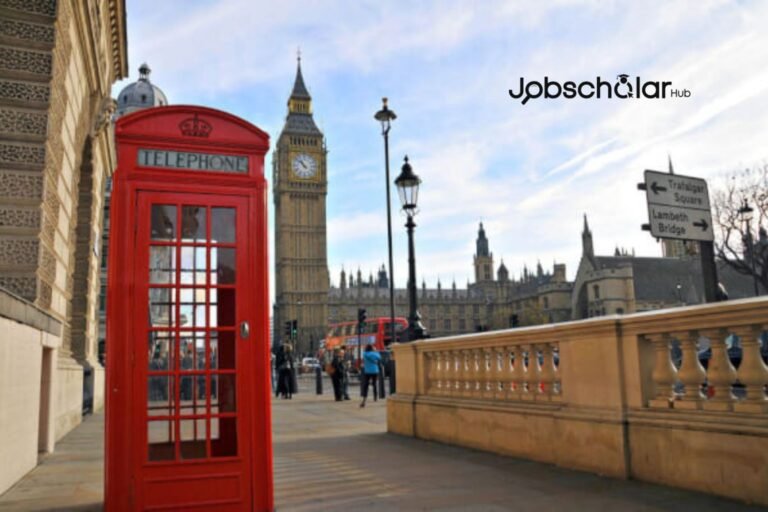Visa interviews and the questions that come with it are perhaps the most nerve-wracking moment of any travel, study or work dream. And they kind of are a big deal, if we’re being honest.
According to the U.S. Department of State, more than 20% of non-immigrant visa applications get rejected annually — many times due to applicants floundering on common interview questions. When it comes to applying for a student visa, work visa or visitor visa, it all boils down to one key to success — preparation is everything!
In this guide, we cover the most common visa interview questions and how to answer them like a pro. Let’s get into it!
Table of contents
What Happens in USA Visa Interviews?

Usually, your US visa interview will be done by one consular official, and she or he may question you about nearly everything in your application and your expected stay in the US.
There are some general questions, which are asked to all applicants, no matter for which visa you are applying. This involves Basic information eg, about your Background, Contact, etc.
Further you will be asked visa-specific question, which are related to the specific requirement or rules as per the immigration route you are applying for.
The official will usually initiate the interview with one or two easy, lay-up questions — questions which will likely be based on information that is already provided in your visa application — and then gradually progress to deeper, and more probing questions that may require documentation in support.
Certain visas will require more thorough questioning by the adjudicating officer like the E-2 visa for investors and the L-1 visa for intracompany transferees, to name a couple. These routes have you answering potentially in-depth questions on your application and employment and business activity, that sit at the heart of the visa conditions.
If you do not answer the visa interview questions completely and correctly, or you simply do not attend your US visa interview without reason, your visa application will be rejected, and any fees paid will not be refunded.
You should read this related content: How to Settle in Australia After Migration: Live the Aussie Dream
Who Must Attend the Interview

- You (the principal applicant), no matter your age.
- Family members immigrating with you, if they will be 14 or older on the day of the interview. By family members, it means your spouse and all qualified unmarried children on the same petition and case number.
- A family member, at any age, who has his/her own petition/case number. That is because they are their own principal applicant.
- Your dependents (spouse and/or eligible unmarried children) who will immigrate at a later date and travel separately from yourself. They will get a separate interview appointment. But only you can reach out to the U.S. Embassy or Consulate in order to schedule individual interviews — if necessary.
- Your sponsor/petitioner. While they’re not required to attend the interview, these family members are still typically allowed to accompany you when you go. This gives consular officers a chance to see the entire family at once, which might mitigate follow-up questions down the road.
Read also: Exciting International Job Opportunities for U.S. Citizens Living Abroad in 2025
General Questions for US Visa Interview

Questions during a U.S visa interview will vary depending on which visa you are applying for, however be prepared to answer the following:
- What is your name, as well as your identity and contact details?
- What is your travel plans to the US? Why at this time?
- How many people are travelling with you? Who are they? Why are you not travelling with, say, a spouse?
- Will you remain in the US for a long period? Why this long?
- What is the purpose of this trip?
- What do you plan to do in the US during your stay?
- Where you’ll be staying in the US?
- Have you previously traveled to the United States?
- Have you ever been charged with a crime? If so, what was the crime?
- Do you have any relatives in the US? Who are they?
- Do you have any children? If so, how many? Where do they live and how old are they?
- Did you already purchase travel tickets? Are these return tickets?
- Are you insured?
- How much do you expect the trip would cost?
- How are you paying for your trip?
- Have you ever travelled from your country of origin elsewhere? If so, when?
- Can you show any evidence that you will leave the US and return home?
- What do you do for a living?
- What’s your profession and your job title?
- Are you taking holidays if you are working?
- Who will take care of your business if you work for yourself?
- Are you planning to remain in the US?
- Do you have any assets in your home country?
- Will you be working in the US?
Read: H4 Visa Interview Questions: Avoid These Mistakes!
What they Expect?
You will have to present some sort of plan, with a rough map of where you’ll be staying and at least your first plans for where to go next. This should also incorporate wherever in the US you intend to reside, whether it is in the single city, or state, or travelling, seeing multiple stops.
You will also be required to present proof of any hotel / accommodation reservation or alternatively proof of any invitation from a friend / family member along with the address that you intend to stay in the USA.
You will also need to provide detailed information about who is travelling to the US with you for business, family, or leisure purposes — including whether you are travelling alone or not.
If you are travelling with a relative, you will need to provide details about your relationship, including whether they are applying as your dependant. Generally, dependants would go to the interview with the principal applicant.
They also may ask about when you plan to visit and how long you intend to stay. This often includes rationale for why you should travel to the US at that particular time, whether you will extend your trip once in the US, and if you intend on staying in the US indefinitely.
Read also: Best UK Jobs With Visa Sponsorship
What Documents do you need for your U.S Visa Interview?

During your US visa interview you will need to show documentation relative to your category of visa application, for instance, an L-1 employee must furnish, inter alia, a detailed letter describing his or her job.
You might also have to provide documentary proof (where applicable) of:
- Your status in the country where did you live
- Any US visas issued before
- Any communicable medical condition
- Any arrests, convictions or cautions, no matter when they happened
- Bank statements and proof of funds
Read: Family-Based Immigration in the U.S- Sponsorship & Visa
After your US visa interview
After the US visa interview, the interviewing officer will tell you at the end that your visa application was either approved, denied or needs more documentation.
If your visa application is approved, and a visa is issued, your passport will be returned to you via courier service to the visa collection or passport location specified when making your visa interview appointment.
Read: How To Get Best USA Jobs With Visa Sponsorship
FAQs On U.S Visa Interview
The common US visa interview questions depend on the purpose of your visit. Now depending on your visa, the questions would be different.
The duration of a US visa interview is typically 10 to 15 minutes. This extent of time may vary based on how complicated your case is and whether the consular officer needs to ask additional questions or not.
Carry your passport, completed visa application form (DS-160), appointment confirmation, payment receipt, and supporting documentation specific to your visa (such as financial statements, invitation letters, or employment letters).
If you are not fluent or not comfortable in speaking English, you can ask for a translator for your US visa interview. (Some embassies and consulates offer translation services; check with yours in advance.)
If you don’t understand a question, politely ask the consular officer to repeat or clarify it. It’s crucial to get each question correct, so ask for clarification if you need it.
Yes, if the consular officer is not satisfied with the information provided in the interview, the visa can be denied.
A reason will be provided to you when your US visa application is denied. Generally, you’ll be able to reapply after working through whatever issues resulted in the denial, although some denials are permanent.
There is no written rule for US visa interview dress code; however, you must dress neatly and professionally. You should look like you take the process seriously.
If you are unable to attend your US visa interview due to the scheduling of the appointment, you need to reschedule it. You should do so as soon as possible because this will help you avoid delays in your visa application process.
Conclusion
Visa interviews don’t have to be scary. Of course with proper preparation, confidence and a solid grasp on the most popular questions to expect, you can walk in feeling prepared to make a lasting impression.
Keep in mind that visa officers are not trying to trick you — they are looking for honest, simple answers that demonstrate you are a genuine, eligible applicant. If you work through these basic questions and steer clear of the common mistakes — congratulations, you’re already ahead of the game. A little groundwork now might be the difference between a thumbs-down and a life-changing “Approved” stamp.
We think you should also read: Balancing Work and Mental Health: What Works in 2025
References
- Boundless Immigration- Visa Sample Interview Questions
- Shore Light- Visa Interview Questions and Answers
- Visa Guide World– Visa Interview Questions






